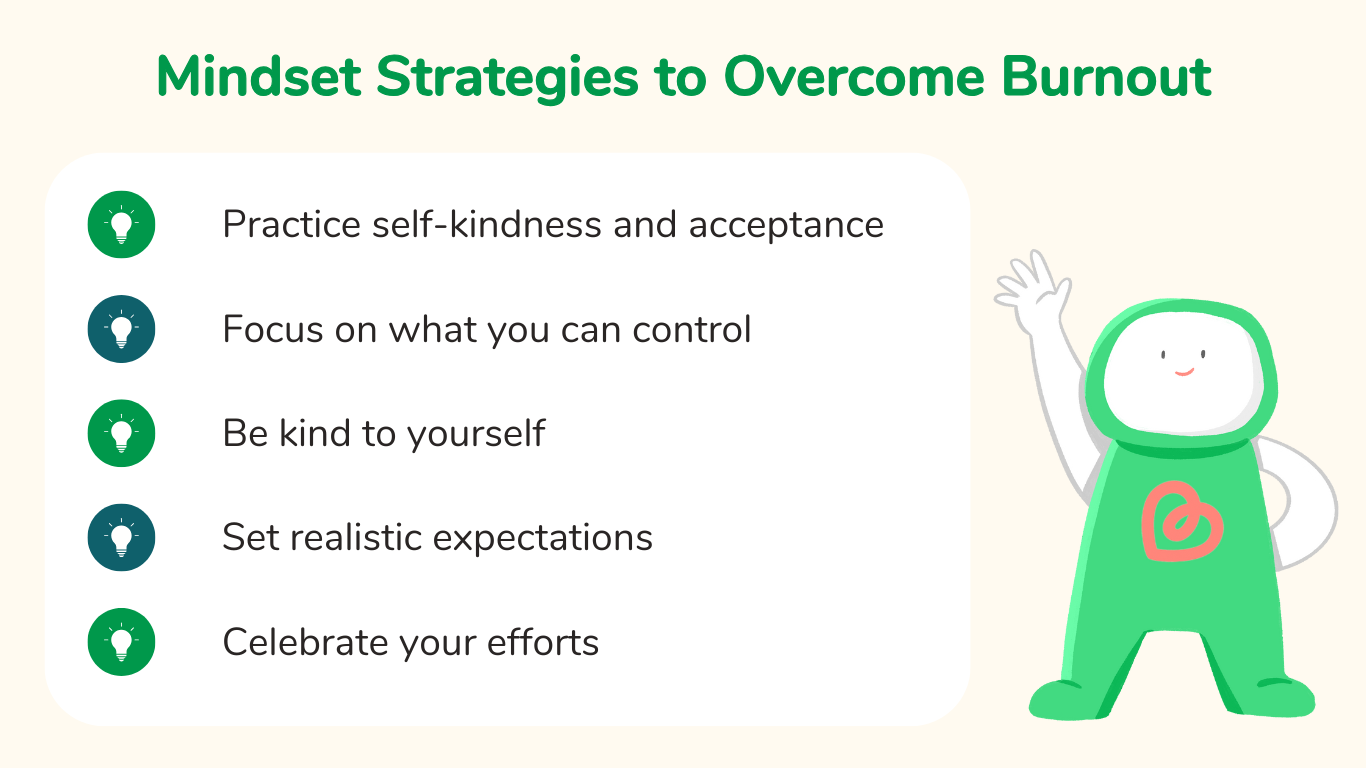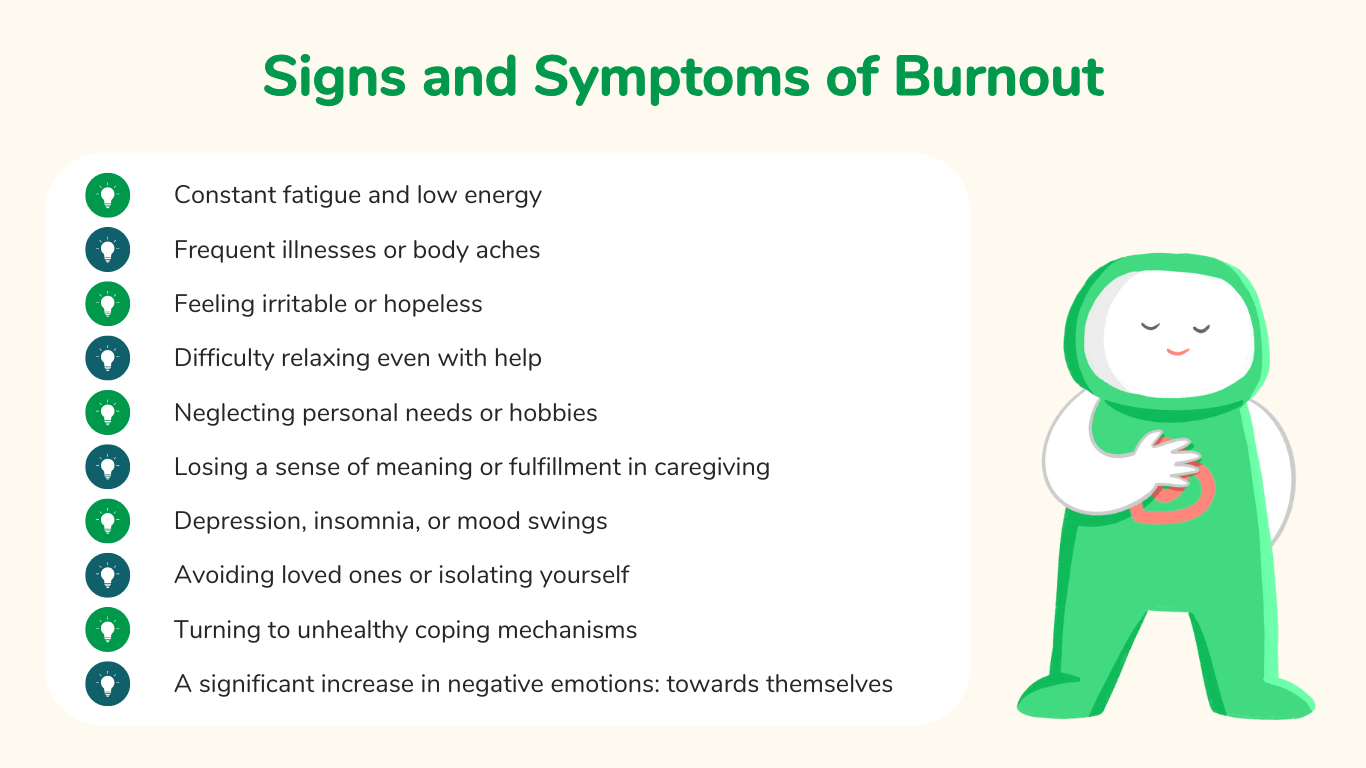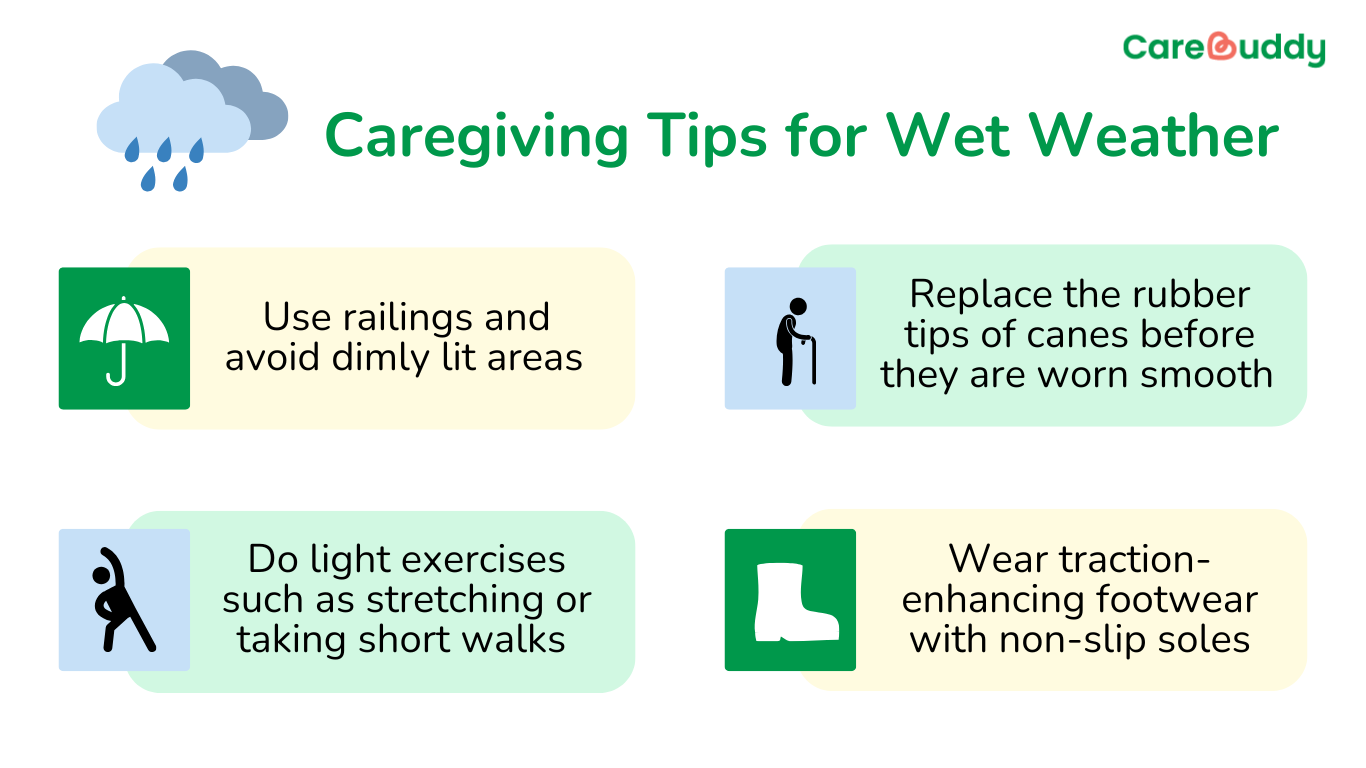Caring for the Caregiver: Key Strategies to Combat Burnout
- CareBuddy
- 4 Mins Read
- 10 Dec 2024
- Caregiving

In this article, we will explore effective strategies to prevent and manage burnout, helping you to find ways to regain a sense of balance.
Common Emotions Felt When Experiencing Burnout
Caregivers may experience a range of emotions that, if persistent, can deepen burnout and lead to emotional strain.
- Anxiety: Worrying about making mistakes that could hurt your care recipient.
- Frustration: Feeling unappreciated or that your care recipient refuses your help.
- Guilt: Believing your own needs don’t matter and feeling bad for taking care of yourself.
- Denial: Minimizing the seriousness of your care recipient’s condition.
- Pessimism: Feeling that caregiving is a burden and leaves you unfulfilled.
- Helplessness: Feeling alone and unsure if help is available, or that you shouldn’t ask for it.
- Lack of Autonomy: Feeling like you have no control over your own life or decisions.
Want to learn more about caregiver burnout? Check out our previous article here
Mindset Strategies to Overcome Burnout
Now that we've identified the emotions caregivers often experience, let's explore some mindset strategies that can help manage these feelings.
- Practice Self-Kindness and Acceptance
- It’s natural to feel frustrated or even resentful at times. Accept these emotions as valid without letting them define you. Feeling this way doesn’t make you a bad person or caregiver.
- Example: If you occasionally feel angry at your care recipient, remind yourself that these feelings don’t negate the effort and love you put into caregiving.
- Focus on What You Can Control
- While it’s natural to want more help or appreciation, we can't control others' actions or feelings. Instead, we can focus on what is within our control.
- Be Kind to Yourself
- If you’re feeling discouraged or inadequate, remember that it's okay to do less as long as things still get done. Be gentle with yourself.
- Set Realistic Expectations
- Be honest about your abilities and set achievable goals. It’s better to prioritize what's manageable than exhaust yourself trying to be the "ideal" caregiver.
- Celebrate Your Efforts
- Take a moment to recognize your hard work. Every effort counts, no matter how small it may seem
Other Solutions to Overcome Burnout
Along with adjusting your mindset, these practical steps can also make a significant difference in managing burnout.
- Break Tasks into Smaller Steps
- Breaking tasks into manageable actions can make an overwhelming day feel easier. Create a to-do list and tackle it step by step.
- Invest in Your Happiness
- Make time for activities you enjoy or that hold personal meaning, whether it’s a hobby, spending time with friends, or engaging in community work.
- Prioritize Self-Care
- Remember, self-care is essential for caregivers. Set aside daily "me time" to recharge and ensure you're not constantly exhausted.
- Accept Help When Offered
- When someone offers assistance, don’t hesitate to accept it. It’s not a weakness, but a smart way to lighten your load. Keep a list of small tasks, like errands, that can be easily delegated.
- Reach Out for Support
- If you're feeling overwhelmed, don’t be afraid to share your struggles with trusted loved ones. For instance, you might say, "I’ve been really tired lately, could you help me by driving my grandmother to her medical checkup tomorrow so I can rest?"
- Let Go of Control
- Allow others to help in their own way. People are more likely to offer support when they feel trusted and valued, rather than pressured to follow rigid instructions.
While caregiver burnout can feel overwhelming, there are ways to manage and overcome it. Through recognizing your emotions, practicing self-compassion, seeking support, and being realistic about your capacity, you can protect your well-being. Embracing these strategies will help you avoid burnout and ensure you can continue providing the best care for your loved ones.



























































































